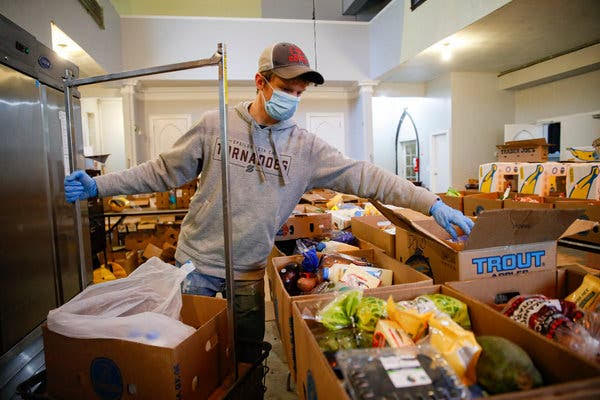Earlier this month, Tisch Food Center’s Pam Koch, the CUNY Urban Food Institute’s Nick Freudenberg, and Hunter College New York City Food Policy Center’s Charles Platkin discussed their collaborative landmark report, NY Food 20/20: Visions, Research, and Recommendations for Food Systems During COVID-19 and Beyond. The research revealed that the current food-related policies and programs were insufficient; there was difficulty providing residents enough to eat while still prioritizing nutrition and cultural appropriateness of foods, and food insecurity remains high. Though the pandemic presented an immense challenge to NYC, it also helped to uncover how elected officials and city residents alike can catalyze change and foster a healthier, stronger, more equitable food system.
NYC Food 20/20 Recommendations
Based on the report’s initial findings, researchers made several recommendations for fostering a more resilient, sustainable, and healthy food supply for NYC:
- The city should create a database where food pantries can easily communicate hours, openings, and inventory to the public. This would help to reduce redundancies and make sure those who need it have access to emergency food.
- Pressure must be put on policymakers to pass legislation that makes it possible for all New Yorkers to afford healthy food. Ultimately, residents that suffer chronic food insecurity must not and cannot depend on charitable organizations as their main resource for food.
- New York should adopt the Good Food Purchasing Program to help promote a more equtiable, healthy supply chain. There is a strong link between unhealthy food that is readily available, affordable, and advertised in low-income communities and prevalence of diet-related diseases that increase risks for severe cases of COVID-19.
What Can You Do?
The panelists urged the audience, as fellow eaters and NYC residents, to take action:
- Read the NY Food 20/20 report, and share on social media platforms such as Twitter, Instagram, and Facebook. Tag your city council members and representatives to get them on board with making change in your community.
- Encourage the city council to continue to develop their 10 Year Food Plan with specific goals based on input from the community.
- Contact the City Council, and tell them the importance of the Office of Food Policy. Let them know that the Office needs clear authority and greater resources to expand!
- Every individual or city organization from schools, to workplaces, to public housing can put pressure on leaders to address food insecurity and diet quality issues by contacting their local elected officials. For best practices on building relationships with policymakers, see our blog post!
The current crisis can be an opportunity for change. This report provides the evidence required for NYC to create and implement the policies and resources to ensure adequate, healthy food is a basic human right; improve pay, safety, and working conditions for all food workers; and make hunger history. Take action today, and you can make a difference and contribute to a healthier, more equitable New York City!
To learn more about their key findings, check out this Daily News Op-Ed written by researchers Pam Koch, Nick Freudenberg, and Charles Platkin, or visit the NY Food 20/20 website.
